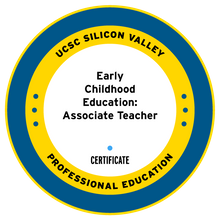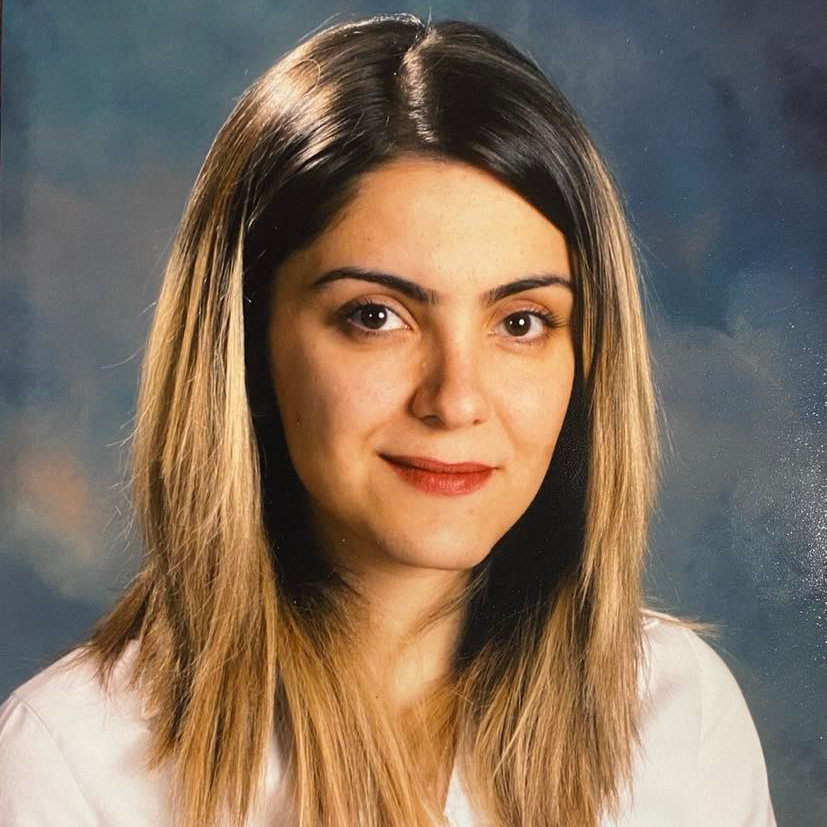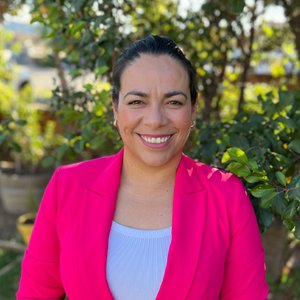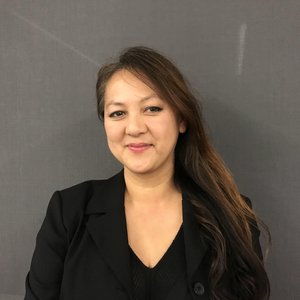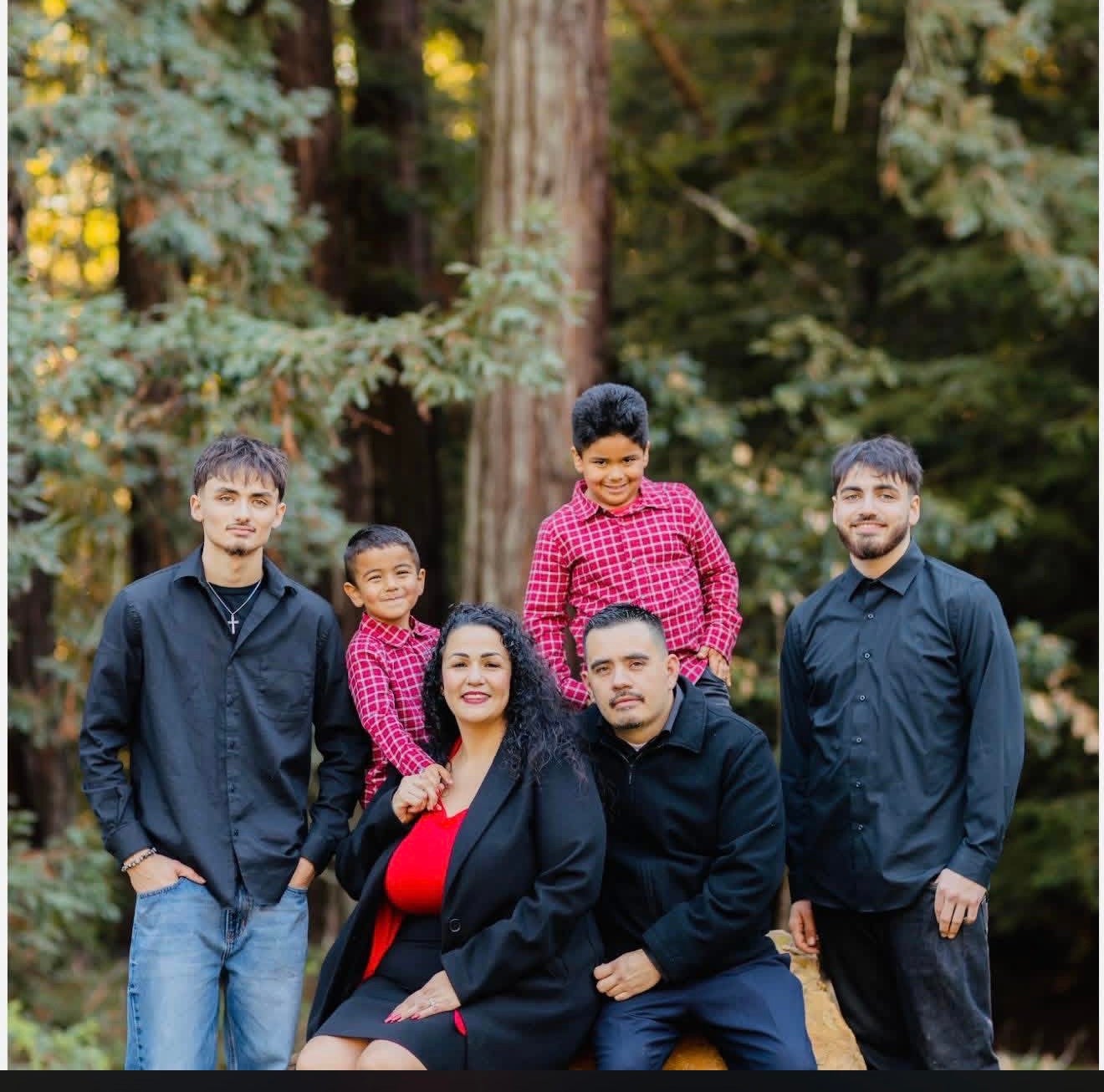The youngest minds teach us the most
This Program is Perfect For
- Aspiring infant-toddler and preschool teachers aiming to qualify for entry-level roles in licensed early learning settings
- Individuals seeking the Child Development Assistant or Associate Teacher permit and Transitional Kindergarten qualifying units
- Learners looking for a foundational, flexible, and accessible credential to build early childhood expertise
Teach our youngest to love learning
Preschool teachers and child care center operators in the Early Childhood Education Associate Teacher program gain the academic preparation and field experience needed to work in preschools, day care facilities, infant and toddler centers and other programs serving young children. You will study the latest instructional techniques that promote intellectual, social, emotional, physical, and creative growth in children.
Key focus areas
- Child growth and development
- Strategies for effective classroom teaching
- Developmentally based curriculum
- Current research and trends in this field
Certificate program learning outcomes
- Develop daily schedules and implement age-appropriate curriculum for a center or classroom.
- Identify social, intellectual, emotional, physical, and cognitive development of infants through middle childhood.
- Distinguish differences in major learning theories and curriculum models relating to early childhood education center philosophies.
- Communicate effectively with families, staff, and communities about the physical, cognitive, social, and emotional needs of children.
- Decode healthcare policies and procedures that relate to child care setting licensure.
- Develop positive guidance strategies to work with diverse groups of children including those with special needs.
Meet state licensing requirements
Dept. of Social Services Title 22
The Early Childhood Education Associate Teacher certificate program satisfies the Department of Social Services Title 22 Community Care licensing requirements for qualified infant-toddler and preschool teachers, as well as before and after school-age caregivers in a licensed early childhood program.
Department of Education Title 5
This program also satisfies the California Department of Education Title 5 child development coursework requirements for the Child Development Assistant or Associate Teacher permit.
Transitional Kindergarten ECE
This program is designed for teachers requiring ECE/CD coursework for Transitional Kindergarten ECE units.
Courses
Program Requirements
Take 5 courses (20 quarter units)
- End with certificate of completion review.
| Title | units | Fall | Spring | Summer | Winter |
|---|---|---|---|---|---|
| ECE 2: Introduction to Teaching Young Children | 4.0 | Live-Online | |||
| ECE 3: Curriculum Development in Early Childhood Programs | 4.0 | Live-Online | |||
| ECE 8: Child Health, Safety and Nutrition | 5.0 | Online Traditional | |||
| ECE 4: The Young Child in the Family and Community | 4.0 | Online Traditional | |||
| ECE 1: Development in Early Childhood | 4.0 | Live-Online |
| Title | units | Fall | Spring | Summer | Winter |
|---|---|---|---|---|---|
| Early Childhood Education Associate Teacher Certificate Completion Fee |
| Title | units | Fall | Spring | Summer | Winter |
|---|---|---|---|---|---|
| Math Development in Young Children | 2.0 | Online Traditional | |||
| ECE: Brain Development in Early Childhood | 3.0 | Live-Online | |||
| Attention Deficit Hyperactivity Disorder (ADHD) in the Classroom | 3.0 | Live-Online | |||
| ECE: Creative Arts for the Young Child (Preschool Through Grade 3) | 3.0 | Live-Online | |||
| ECE: Principles of Infant/Toddler Caregiving | 3.0 | Live-Online | |||
| Science Play: Inquiry-Based Learning Made Easy | 1.0 | ||||
| ECE: Infant/Toddler Growth and Development | 3.0 | Live-Online |
1. Required Course(s):
- Live-Online Attend via Zoom at scheduled times.
| Date | Start Time | End Time | Meeting Type | Location |
|---|---|---|---|---|
| Sat, 04-25-2026 | 9:00am | 5:00pm | Live-Online | REMOTE |
| Sat, 05-02-2026 | 9:00am | 5:00pm | Live-Online | REMOTE |
| Sat, 05-09-2026 | 9:00am | 5:00pm | Live-Online | REMOTE |
| Sat, 05-16-2026 | 9:00am | 5:00pm | Live-Online | REMOTE |
| Sat, 05-30-2026 | 9:00am | 5:00pm | Live-Online | REMOTE |
This class is offered in an online synchronous format. Students are expected to log into this course via Canvas at the start time of scheduled meetings and participate via Zoom, for the duration of each scheduled class meeting.
No meeting on May 23, 2026. To see all meeting dates, click "Full Schedule" below.
You will be granted access in Canvas to your course site and course materials approximately 24 hours prior to the published start date of the course.
Required Text:
Beginnings & Beyond: Foundations in Early Childhood Education, Ann Miles Gordon and Kathryn Williams Browne,engage Learning, 2013. ISBN: 9781133936961
- Live-Online Attend via Zoom at scheduled times.
| Date | Start Time | End Time | Meeting Type | Location |
|---|---|---|---|---|
| Thu, 04-02-2026 | 5:30pm | 9:30pm | Live-Online | REMOTE |
| Thu, 04-09-2026 | 5:30pm | 9:30pm | Live-Online | REMOTE |
| Thu, 04-16-2026 | 5:30pm | 9:30pm | Live-Online | REMOTE |
| Thu, 04-23-2026 | 5:30pm | 9:30pm | Live-Online | REMOTE |
| Thu, 04-30-2026 | 5:30pm | 9:30pm | Live-Online | REMOTE |
| Thu, 05-07-2026 | 5:30pm | 9:30pm | Live-Online | REMOTE |
| Thu, 05-14-2026 | 5:30pm | 9:30pm | Live-Online | REMOTE |
| Thu, 05-21-2026 | 5:30pm | 9:30pm | Live-Online | REMOTE |
| Thu, 05-28-2026 | 5:30pm | 9:30pm | Live-Online | REMOTE |
| Thu, 06-04-2026 | 5:30pm | 9:30pm | Live-Online | REMOTE |
1/20/26: Schedule change. See full schedule for details.
This class is offered in an online synchronous format. Students are expected to log into this course via Canvas at the start time of scheduled meetings and participate via Zoom, for the duration of each scheduled class meeting.
To see all meeting dates, click "Full Schedule" below.
You will be granted access in Canvas to your course site and course materials approximately 24 hours prior to the published start date of the course.
Required Tools & Materials: None. All articles and resources will be provided.
2. Completion Review:
Please enroll in the Early Childhood Education Certificate Completion Fee only once all of the certificate requirements have been met and your final grades are posted.
3. Related Course(s): Not part of the certificate
- Online Traditional Complete online with instructor-set deadlines.
| Date | Start Time | End Time | Meeting Type | Location |
|---|---|---|---|---|
| Thu, 05-07-2026 | 12:01am | 12:02pm | Online Traditional | ONLINE |
| Thu, 06-18-2026 | 11:58pm | 11:59pm | Online Traditional | ONLINE |
Online Traditional courses have a structured learning environment and fixed deadlines. This course is largely self-study with instructor guidance and includes online learning modules, assignments, and/or quizzes. All course materials and assignments will be available on Canvas, our learning management system.
For this section, student access begins on May 7. All course work must be completed by 11:59 pm on June 18, 2026.
You will be granted access in Canvas to your course site and course materials approximately 24 hours prior to the published start date of the course.
Required Text:
The Young Child and Mathematics, Juanita V. Copley, 2010. ISBN: 9781928896685
Recommended Text:
California Preschool Curriculum Framework: Social-emotional development. Language and literacy. English-language development. Mathematics; California Child Development Division, California. Department of Education; 2010-01-01. ISBN: 9780801116827
- Live-Online Attend via Zoom at scheduled times.
| Date | Start Time | End Time | Meeting Type | Location |
|---|---|---|---|---|
| Mon, 04-06-2026 | 5:30pm | 8:30pm | Live-Online | REMOTE |
| Mon, 04-13-2026 | 5:30pm | 8:30pm | Live-Online | REMOTE |
| Mon, 04-20-2026 | 5:30pm | 8:30pm | Live-Online | REMOTE |
| Mon, 04-27-2026 | 5:30pm | 8:30pm | Live-Online | REMOTE |
| Mon, 05-04-2026 | 5:30pm | 8:30pm | Live-Online | REMOTE |
| Mon, 05-11-2026 | 5:30pm | 8:30pm | Live-Online | REMOTE |
| Mon, 05-18-2026 | 5:30pm | 8:30pm | Live-Online | REMOTE |
| Mon, 06-01-2026 | 5:30pm | 8:30pm | Live-Online | REMOTE |
| Mon, 06-08-2026 | 5:30pm | 8:30pm | Live-Online | REMOTE |
| Mon, 06-15-2026 | 5:30pm | 8:30pm | Live-Online | REMOTE |
This class is offered in an online synchronous format. Students are expected to log into this course via Canvas at the start time of scheduled meetings and participate via Zoom, for the duration of each scheduled class meeting.
No meeting May 25, 2026. To see all meeting dates, click "Full Schedule" below.
You will be granted access in Canvas to your course site and course materials approximately 24 hours prior to the published start date of the course.
Required Text:
Enhancing Brain Development in Infants and Young Children, Doris Bergen, Lena Lee, Cynthia Dicarlo, and Gail Burnett, 2020. ISBN: 9780807764442
- Live-Online Attend via Zoom at scheduled times.
| Date | Start Time | End Time | Meeting Type | Location |
|---|---|---|---|---|
| Wed, 04-01-2026 | 6:00pm | 9:00pm | Live-Online | REMOTE |
| Wed, 04-08-2026 | 6:00pm | 9:00pm | Live-Online | REMOTE |
| Wed, 04-15-2026 | 6:00pm | 9:00pm | Live-Online | REMOTE |
| Wed, 04-22-2026 | 6:00pm | 9:00pm | Live-Online | REMOTE |
| Wed, 04-29-2026 | 6:00pm | 9:00pm | Live-Online | REMOTE |
| Wed, 05-06-2026 | 6:00pm | 9:00pm | Live-Online | REMOTE |
| Wed, 05-13-2026 | 6:00pm | 9:00pm | Live-Online | REMOTE |
| Wed, 05-20-2026 | 6:00pm | 9:00pm | Live-Online | REMOTE |
| Wed, 05-27-2026 | 6:00pm | 9:00pm | Live-Online | REMOTE |
| Wed, 06-03-2026 | 6:00pm | 9:00pm | Live-Online | REMOTE |
This class is offered in an online synchronous format. Students are expected to log into this course via Canvas at the start time of scheduled meetings and participate via Zoom, for the duration of each scheduled class meeting.
To see all meeting dates, click "Full Schedule" below.
You will be granted access in Canvas to your course site and course materials approximately 24 hours prior to the published start date of the course.
Required Text:
How to Reach and Teach Children and Teens with ADD/ADHD, 3rd ed., Sandra F. Rief, John Wiley & Sons, 2016. ISBN: 9781118937785
Available as a PDF and on Kindle.
Recommended course sequence
Flexible course sequence
Courses may be taken in any order provided the prerequisites are met.
Substitutions
To receive your certificate
Professional development
Child Development Permit
Here's what you need to apply for the Child Development Associate Teacher Permit:
- Completion of coursework.
- Complete 50 days of experience in an instructional capacity in a child care and development program, working at least three hours per day.
- Recent instructional experience (within the last two years).
Please visit the California Commission on Teacher Credentialing for more information.
Licensure and Certification Policy
Professional licensure or certification is mandatory to practice in this field of instruction. Please see our Licensure and Certification Policy to learn more.
Requisite knowledge
There are no requirements to join the program.
Grade requirements
Please note that only letter grades of C or higher may be applied to a certificate, and in some programs, students may have more stringent requirements. Students in most employer- and government-sponsored payment programs, such as workforce development, as well as international students on F-1 visas, need to maintain a B average to meet their requirements.
See Grading and Credits Policy for further information.

Establish Candidacy
Instructors
Ninet Moradi
NINET MORADI, BA, MA, is a published author who has about three decades of experience in early childhood education and special education. She has run her own childcare program and worked as an administrator of childcare centers with different philosophies, programs, and settings. She has helped several state-funded, for-profit, and nonprofit programs obtain licensing and launch high-quality programs.
Moradi has a bachelor’s and a master’s degree in special education with a specialization in psychology. She holds a Child Development Director permit and certificates in Applied Behavior Analysis, Independent Facilitator for Self Determination Program for individuals with Special needs, Computerized Bookkeeping, Infant and Children’s Nutrition, Child Trauma, Crucial Conversations, CACFP, and Educational Therapy. She has volunteered as a court-appointed child advocate for many years and began teaching at UCSC Extension in 2014. She has served as chair of the Early Childhood Education: Supervision and Administration, Certificate Program Advisory Board since 2021 and as program chair for both ECE, Advanced Teacher and ECE Associate Teacher since 2025. She is a member of the National Society of Leadership and Success, Phi Theta Kappa Academic Honor Society, Association of Educational Therapists, National Association for the Education of Young Children, and California Association for the Education of Young Children.
Robyn F Stone
ROBYN STONE, M.A., an educational leader in Santa Clara County, has been teaching at the pre-kindergarten, elementary, and middle school levels in both science specialty and general education classes for 13 years. She holds several California credentials, including an Administrative Services Credential, a Child Development Site Supervisor Permit, and a Multiple Subject Teaching Credential. A member of the National Science Teachers Association, the California Science Teachers Association, the National Association for the Education of Young Children, and the California Association for the Education of Young Children, she presents workshops for educators and administrators at regional and national education conferences. She serves as an advisor for the ECE program.
Certificate Program Advisory Committee
NINET MORADI, BA, MA
Author | Advisor Industry Leader
Co-Chair and Instructor, UCSC Silicon Valley Extension ECE Certificate Programs
ROBYN STONE, M.A.
Educational Leader in Santa Clara County
Co-Chair and Instructor, UCSC Silicon Valley Extension ECE Certificate Programs




